Are you looking to craft a letter that truly resonates with the essence of a foreign exchange program recommendation? It's crucial to highlight the candidate's strengths, cultural adaptability, and eagerness for learning in your writing. A personal touch can go a long way in making your recommendation stand out, painting a vivid picture of their potential. Dive into the details with us as we explore effective tips and a sample template to help you create a compelling recommendation letter.
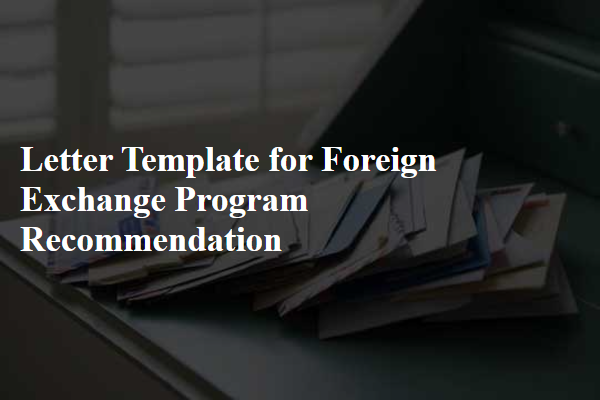
Personal qualities and characteristics
A student participating in a foreign exchange program, such as the International Student Exchange Program (ISEP), greatly benefits from personal qualities like adaptability, cultural sensitivity, and strong communication skills. Adaptability allows students to thrive in new environments, navigating the challenges of different educational systems and social contexts with ease. Cultural sensitivity enhances interpersonal interactions, enabling insightful engagement with local customs and traditions, fostering mutual respect and understanding. Strong communication skills are essential for building connections, facilitating exchange of ideas, and overcoming language barriers, often a significant feature of international programs. These characteristics are vital for a successful and enriching experience in a foreign country, such as Spain or Japan, allowing students to fully embrace their surroundings while contributing positively to their host communities.
Academic achievements and skills
Outstanding academic achievements reflect a student's dedication and intellectual capabilities. For instance, maintaining a GPA of 3.8 or higher indicates exceptional performance across subjects, including advanced placement courses in mathematics and science. Key skills, such as effective communication and critical thinking, play a significant role in collaborative projects, enabling students to lead teams successfully in producing high-quality presentations and research papers. Participation in extracurricular activities, such as science fairs, debate clubs, and language competitions, further enhances a student's profile, showcasing adaptability and cultural openness, which are invaluable in international exchange programs. Involvement in volunteer work, particularly with diverse communities, demonstrates empathy and global awareness, preparing students for the challenges and experiences of studying abroad.
Cultural adaptability and awareness
Cultural adaptability and awareness are crucial skills for students participating in foreign exchange programs, particularly in diverse environments like Japan, Brazil, or Germany. Students with strong cultural adaptability can navigate social norms and customs unique to their host country, fostering deeper connections and understanding. They exhibit openness to new experiences, which enhances their ability to integrate into local communities and participate in cultural events such as festivals or traditional ceremonies. Awareness of cultural differences, including communication styles and etiquette, enables these students to engage respectfully with peers from various backgrounds, promoting inclusivity. By embracing the host culture, students develop a broader worldview and enhance their personal growth, essential for global citizenship and future career opportunities.
Leadership and teamwork abilities
Participation in foreign exchange programs can profoundly enhance students' leadership and teamwork skills. For instance, students engaged in the 2023 Youth Exchange Program in Berlin, Germany, developed essential collaboration skills by working in multicultural teams. These students actively managed diverse group projects, learning to respect various perspectives and communication styles. Moreover, networking opportunities with local leaders at events in historic venues, like the Berlin Rathaus (City Hall), enabled participants to refine their leadership capabilities. In such environments, challenges emerged that required strong decision-making and conflict resolution skills, which are crucial for future leaders. The combination of these experiences cultivates a sense of global citizenship and prepares students for diverse workplaces.
Language proficiency and communication skills
A foreign exchange program participant must possess strong language proficiency, especially in English, as it is widely used in international settings. Effective communication skills are vital for successful interactions, enabling students to engage in academic discussions and social activities. The ability to communicate clearly aids in understanding complex subjects, participating in group projects, and building friendships across cultural boundaries. Fluency in a second language, such as Spanish or Mandarin, can enhance cultural exchange and foster mutual understanding among peers from diverse backgrounds. Strong listening skills further enable participants to absorb information effectively, leading to improved academic performance and enriched experiences during the program.
Letter Template For Foreign Exchange Program Recommendation Samples
Letter template of recommendation for an international exchange participant.
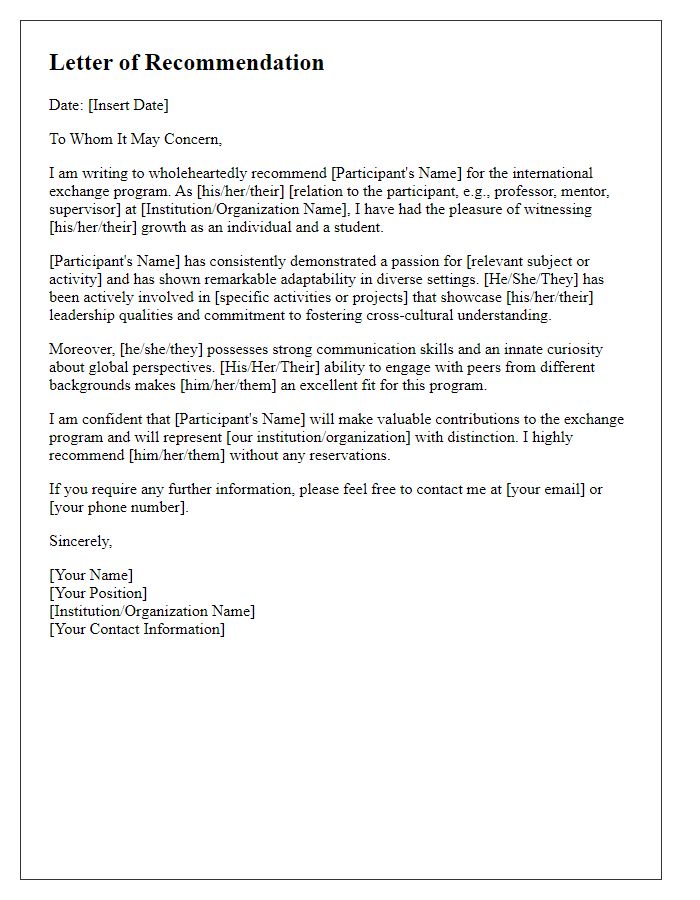
Letter template of commendation for an intercultural exchange program nominee.
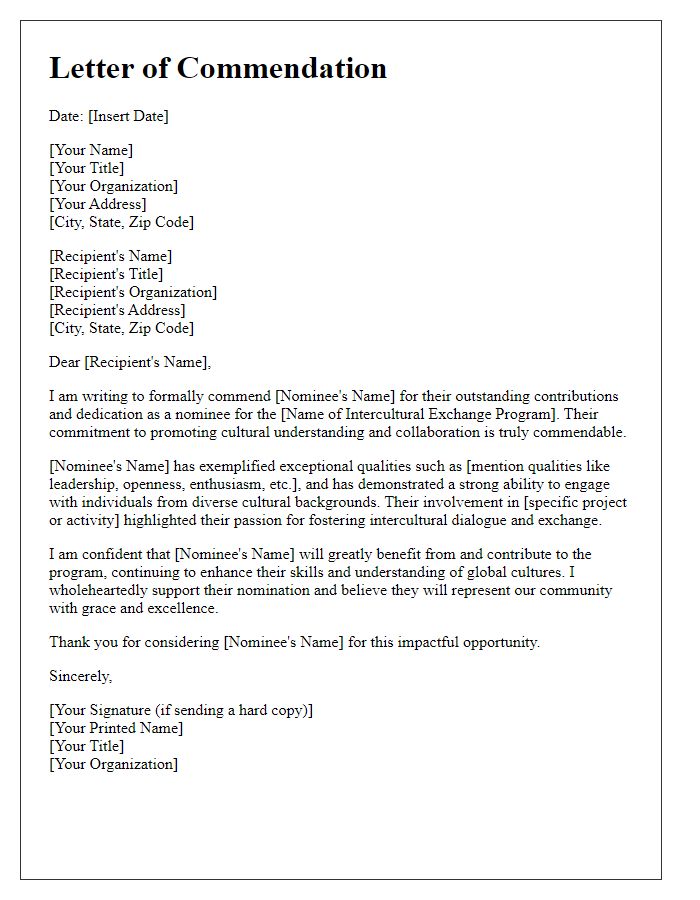
Letter template of reference for an international student exchange program.
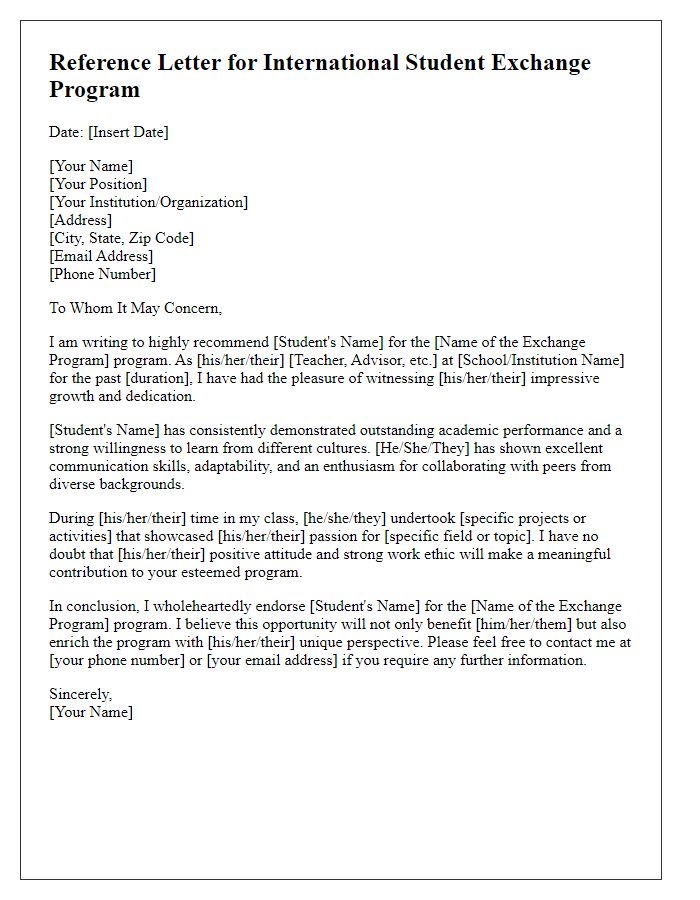
Letter template of backing for a foreign educational exchange applicant.
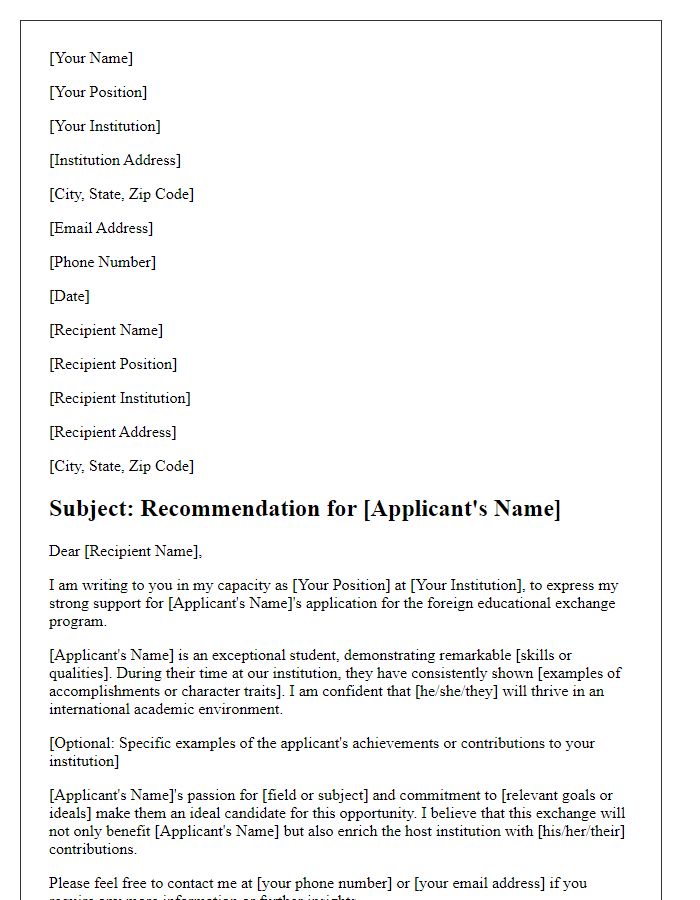

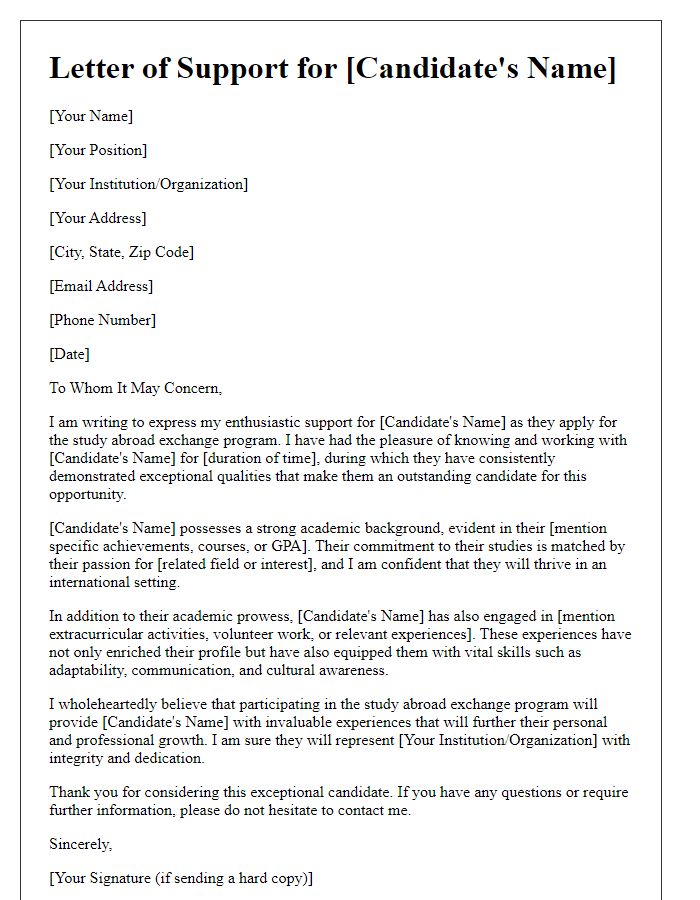
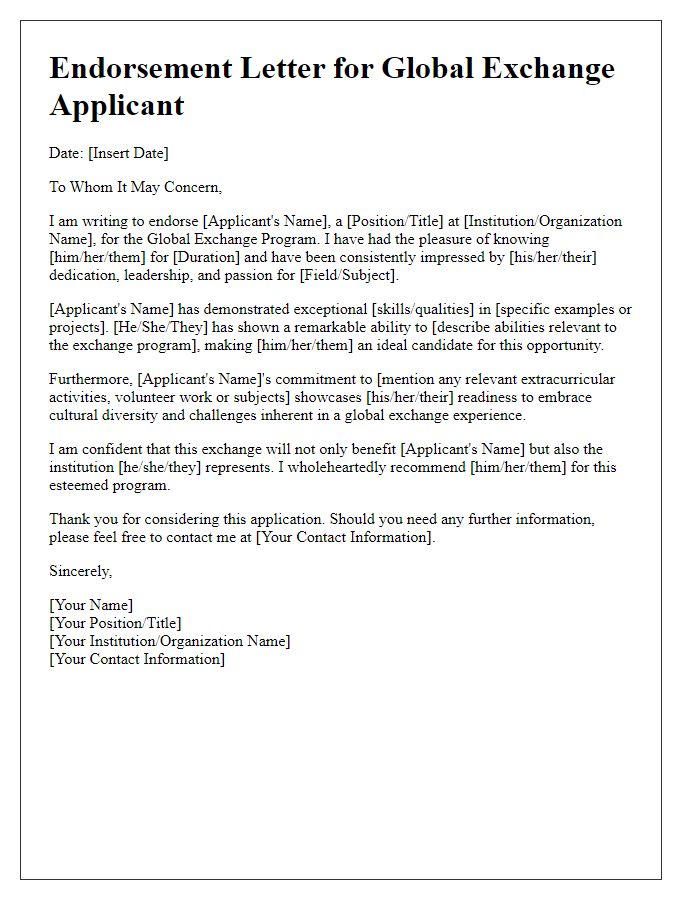
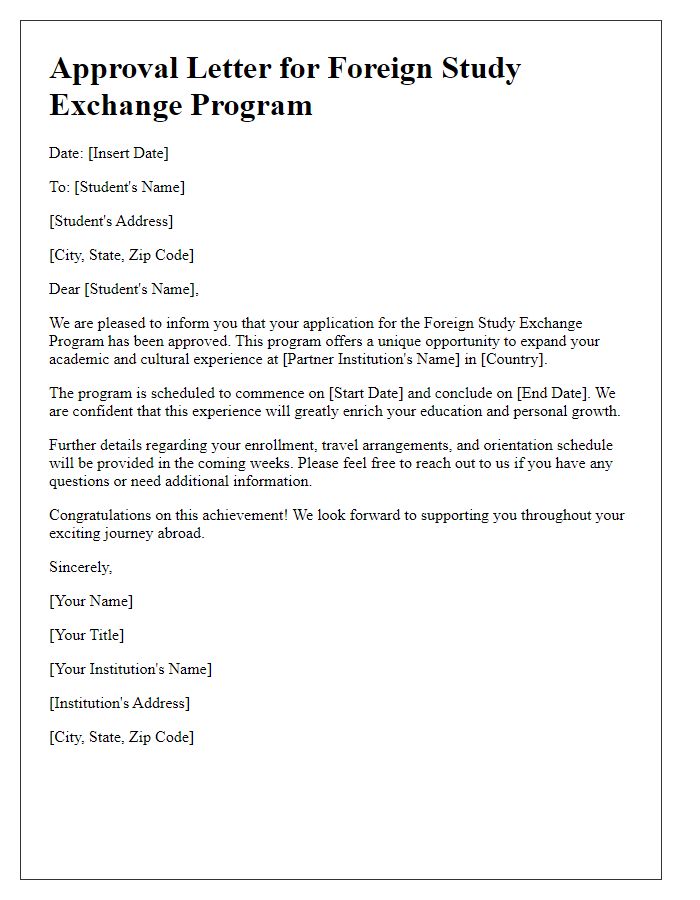
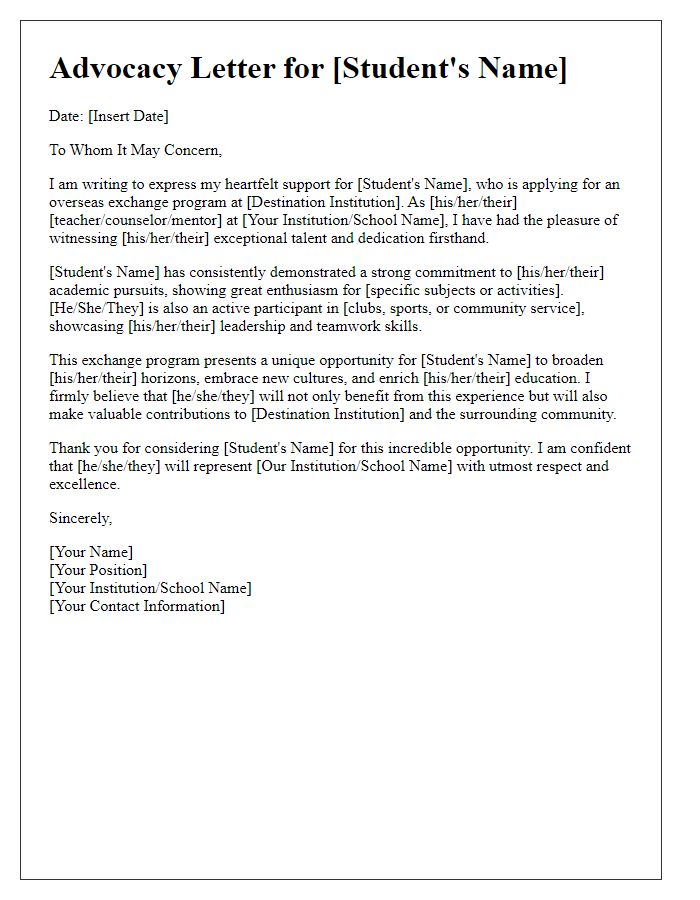
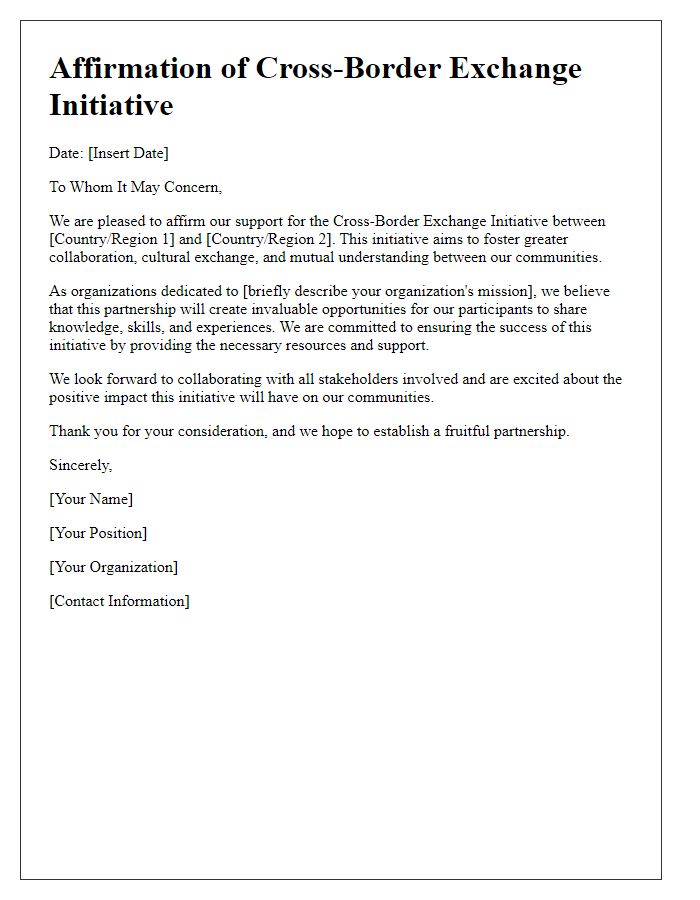
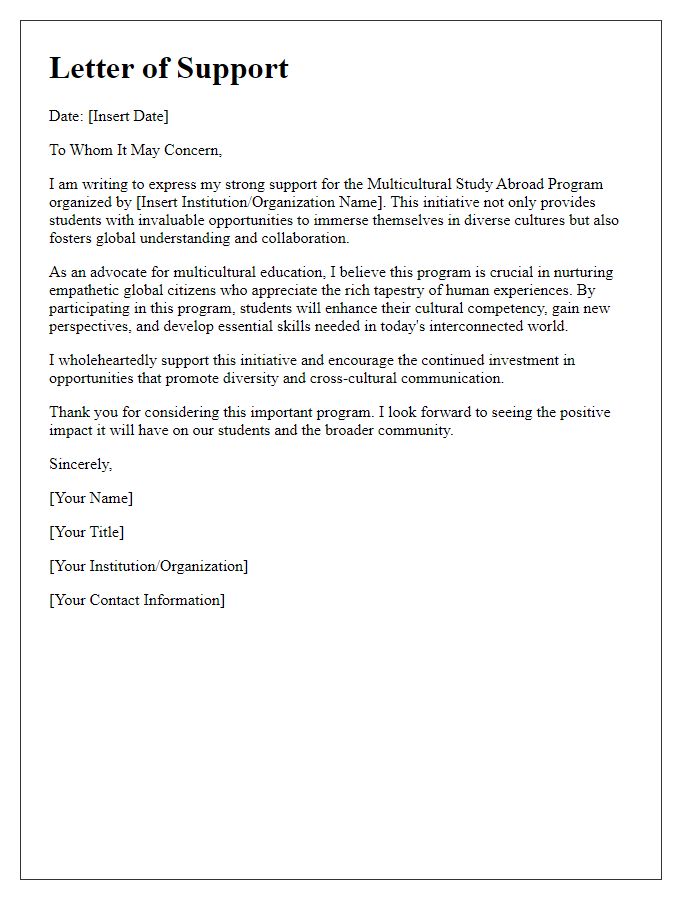


Comments